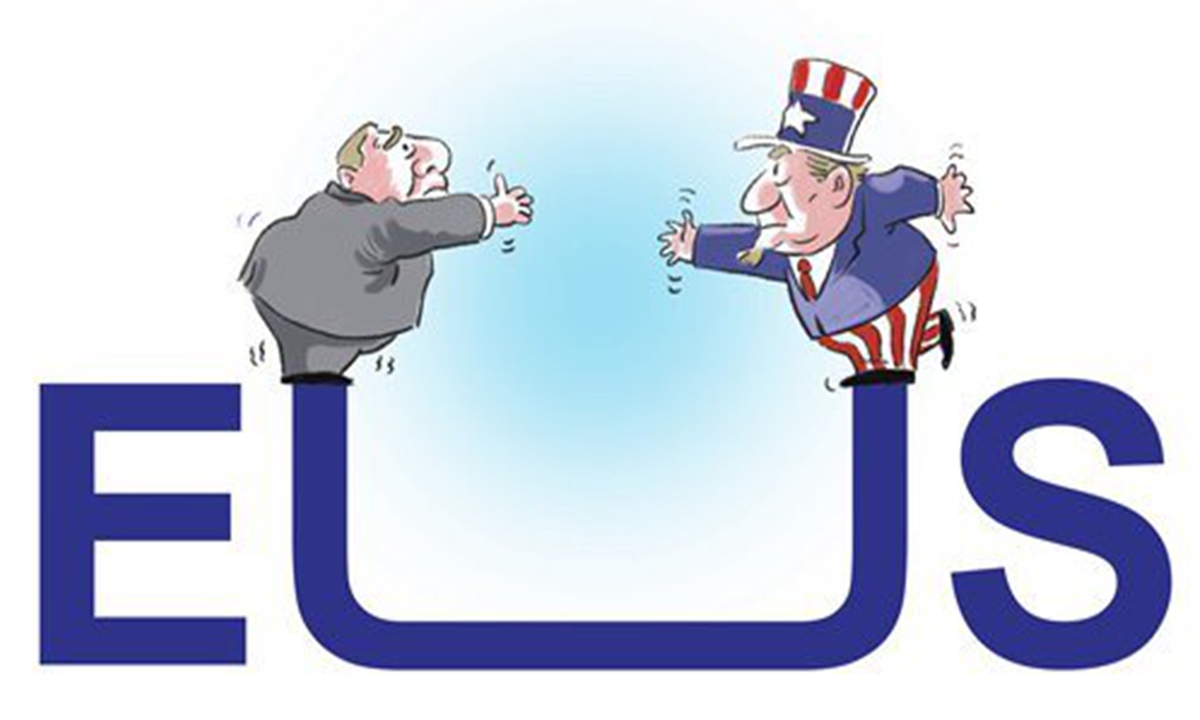
Illustration: Liu Rui/GT
After US President Joe Biden doubled down on accusing Russia's military operation in Ukraine with the term "genocide," US' major European allies have tried to distance themselves from it.
French President Emmanuel Macron on Wednesday refused to use the label, suggesting the "escalation of rhetoric" wouldn't help de-escalate the situation. On the same day, German Chancellor Olaf Scholz also avoided mentioning the word "genocide" during an interview.
Why did France and Germany steer clear of the term, rather than siding with the US? Apparently, they are well aware that such a criminal charge requires a strictly legal definition and thorough investigation. And they know there are divergences in interests between Europe and the US when it comes to the Russia-Ukraine conflict as well as its future evolution.
The US is obviously prolonging the war. After all, it is easy for some American politicians from the other side of the world to scream from their comfortable houses about how "evil" Russia is, and to encourage Ukraine to fight. They just need to move their lips to strike a long-term negative impact on Russia, tie the EU onto its chariot more tightly, make a fortune through arms sales, and accelerate global capital flow back into the US.
However, it is a different story for Europe. They are against Russia's operation and have been imposing various sanctions. But they have their bottom line. The war will end eventually. By then, European countries will still have to live on the same continent with Russia and there will still be interactions.
"If they pushed their hostility toward Russia to an unprecedented peak, such as agreeing to accuse Russia of committing 'genocide,' there would be little room for maneuver in the future. Ties with Russia will hardly come back. Once you compare Russia's moves to Hitler's, how could you ever reconcile in the future?" Sun Keqin, a research fellow at the China Institutes of Contemporary International Relations, commented to the Global Times.
In practical terms, the consequences of the Ukraine crisis have already begun to spill over into Europe. On Thursday, CNBC quoted Germany's biggest economic institutions as reporting that Europe will see a sharp recession if Russia shuts off the gas taps. At the same time, a large number of Ukrainian refugees are flooding into a number of European countries. The EU, which had already learned a hard lesson from the refugee influx caused by the wars in the Middle East and North Africa, genuinely does not wish to see the war go on escalating.
That being the case, a phenomenon has recently emerged - as the US keeps spouting out-of-line rhetoric toward Russia, some European countries are attempting to put out fires.
During his visit to Poland at the end of March, Biden made a fiery statement that Russian President Vladimir Putin "cannot remain in power." It triggered a buzzing discussion on whether the US seeks a regime change in Russia. Whether he said it intentionally or not, the wording discounted Biden's goal for the European trip - strengthening solidarity with Europe. Macron soon warned against the inflammatory language, stressing the goal of a ceasefire.
Some European countries have made clear that constantly upgrading provocative words does not make any sense. In terms of the Russia-Ukraine conflict, rational European politicians would much prefer diplomatic approaches.
Divergences between the two sides of the Atlantic Ocean are unfolding. For instance, after the outbreak of the conflict, the US and Russia never had one single direct dialogue. Even though there have always been calls from the outside world, the US has refused. Yet on the other side, Europe and Russia are keeping doors open to talks. This is a major difference, Cui Hongjian, director of the Department of European Studies at the China Institute of International Studies, told Global Times.
The US and the EU are believed to be in the same camp in this ongoing crisis. Objectively speaking, their security ties are closer. But as time goes by, the consequences of the war will become increasingly clear. And more cracks might emerge between the US and the EU, against the bigger picture of their collaboration.
Washington has been taking to the next level the war of words with Russia, as well as the tensions in Ukraine. Some of its allies have already seen it and decided to keep some distance.
The author is a reporter with Global Times. opinion@globaltimes.com.cn




